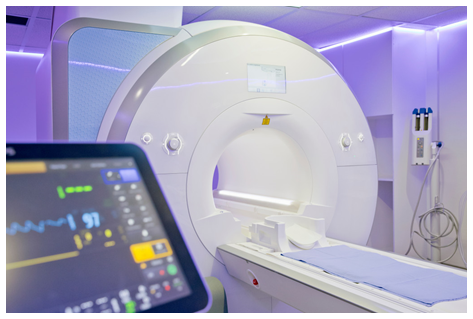- Obtaining the necessary licenses and permits is essential for setting up a private clinic.
- Investing in health can have positive impacts on social and economic development, such as increasing education and improving economic growth.
- Setting up a private clinic requires acquiring the right tools for diagnosis and treatment. Educational materials should also be provided to help patients learn.
- Technology-based services can improve access to healthcare for those living in rural areas with limited options by providing remote consultations with specialists or telemedicine services.
Health and well-being are essential aspects of life, especially for those living in underserved communities. Access to healthcare can be a challenge for those living in rural or low-income areas. That’s why setting up a private clinic to provide free or low-cost services is so important.
Good health and well-being not only promote physical and mental wellbeing, but also have a positive impact on social and economic development. According to the World Health Organization, investments in health have been shown to increase productivity by improving education, reducing poverty, creating jobs, raising incomes and increasing economic growth. In addition, studies suggest that investing in preventative healthcare can save money by reducing future costs associated with chronic diseases and other illnesses.
Unfortunately, there are still millions of people around the world who lack access to basic healthcare services. For example, estimates show that over 4 billion people live without basic sanitation in their homes, while another 2 billion rely on unsafe drinking water sources. Other estimates suggest that more than 1 billion people do not receive any kind of basic medical coverage. Additionally, many rural and indigenous populations lack access to healthcare facilities altogether due to geographical isolation or financial constraints.
However, you might want to change all that for your local community by creating a private clinic. Here are a few tips to help you with the process.
Get the Proper Licenses and Permits
It is a given for people starting a private clinic to have the proper credentials and academic background to practice in their respective field, but it is also important to obtain the necessary licenses and permits that are required by local governments.
These may include zoning variances, building permits, access to public water and sewerage systems, authorization from the state department of health or other regulatory authorities. Familiarize yourself with these regulations before starting your clinic so you can avoid any delays or costly fines down the road.
There might be a few other considerations when opening a private clinic. You should also be prepared to obtain liability insurance, which covers the cost of any medical malpractice suits that may arise from your clinic’s activities. Additionally, you need to have a strong marketing strategy in place to ensure that your clinic reaches its target audience and potential patients.
Finally, you should consider partnering with other healthcare providers or setting up an online presence for your clinic so that it can offer services beyond just its physical space. Any physical space also needs to be kept clean, so it may be worth investing in hiring a cleaning company that specialise in cleaning medical practices like this hospital cleaning in San Diego, CA, to prevent any health issues due to cleanliness. However, if this is not plausible, then you could make a cleaning routine and give it to your staff, so that everything stays sanitary. With these steps in mind, you can start offering quality healthcare services to those who need them most.
Get the Essential Tools
Setting up a private clinic involves much more than just obtaining the necessary licenses and permits. It is also essential to have the right tools to provide quality healthcare services that are tailored to meet the needs of each patient. Using the right home health software that streamlines work scheduling, fosters staff collaboration, and facilitates the seamless uploading of crucial care documentation, allowing you and your team to prioritize what truly counts.
Medical Tools
The first step in getting the necessary tools is to assess the services that you plan on providing in your clinic. This will give you an idea of what type of equipment, supplies, and software you need to acquire. Medical Gloves in the UK and elsewhere are some of the most important items you need, especially when you’re working in a sterile environment or with hazardous material. Some other tools may also include basic items such as medical instruments, cleaning supplies, furniture, pharmaceuticals, and computers. Laboratory diagnostic equipment, however, requires massive investments, so be sure to consider the cost and availability of these machines before making a purchase.
Educational Materials
In addition to acquiring necessary medical tools for diagnosis and treatment, it’s important for clinics to have other resources such as educational materials on health topics. This can help patients gain knowledge about their conditions and how they can better manage them going forward. Educational materials could range from pamphlets or brochures on specific diseases or conditions to interactive activities that engage children in learning about healthy habits or lifestyle choices.
Medical Technology
Finally, having access to technology-based services such as remote consultations with specialists or access to telemedicine services can greatly improve access to healthcare for those living in rural areas with limited options. Finding great software is just as important as the device, and people like LIS software vendors can make sure you find the exact piece of tech you need for your specific service. Technology-based services can help bridge gaps between doctors and patients who are separated by geography or other barriers.
Talented Staff
Your staff will be the backbone of any successful clinic. It is essential to hire talented, dedicated and experienced professionals who are passionate about helping others. Having a team that not only has medical expertise but also compassion for patients can make all the difference in providing quality healthcare services.
Marketing Services
In order to make people aware of the services you are offering, it is important to devise a marketing strategy. This can include utilizing online and print media, as well as word-of-mouth advertising. Additionally, providing discounts or free screenings may help attract patients who otherwise would not have access to healthcare services.
Final Thoughts
By following these steps and taking into consideration the essential tools required for setting up a private clinic, you can provide quality healthcare services that benefit your local community.
Discover more from St. Louis Dad
Subscribe to get the latest posts to your email.







